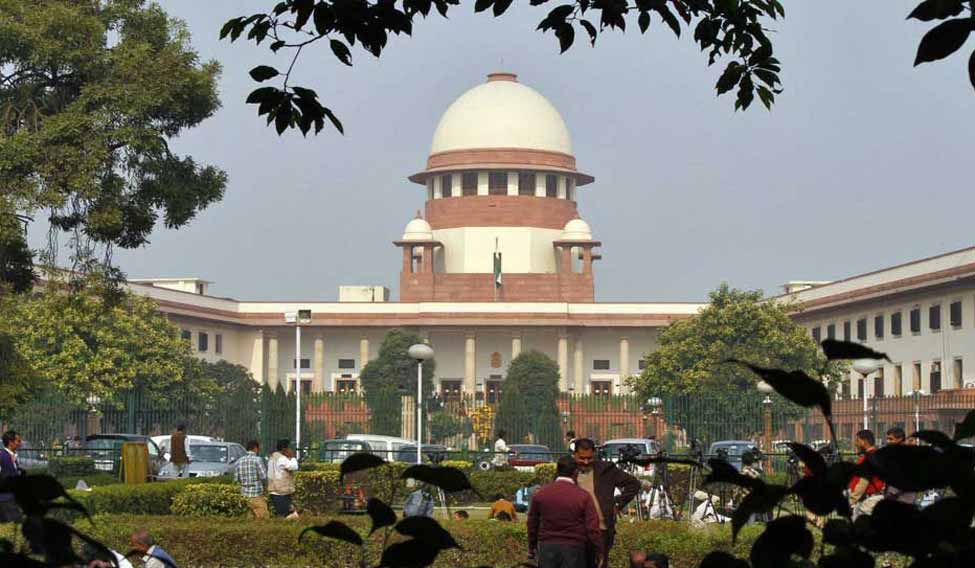The Supreme Court on Tuesday directed Karnataka to continue to supply 2,000 cusecs of Cauvery river water daily to Tamil Nadu till further orders as it commenced hearing on the maintainability of appeals by Karnataka, Tamil Nadu and Kerala to challenge the 2007 Cauvery Water Disputes Tribunal award.
While continuing with its October 4 order on the water release, a bench of Justice Dipak Misra, Justice Amitava Roy and Justice A.M. Khanwilkar said it would be incumbent upon the governments of both states to maintain peace and harmony.
"People should not become law unto themselves," the bench said.
Directing for the continued supply of 2,000 cusecs, the bench noted Attorney General Mukul Rohatgi's contention that both Karnataka and Tamil Nadu were in a "state of dire need" of the water.
Rohatgi said this referring to the report of the Cauvery Supervisory Committee.
The court noted senior counsel Shekhar Naphade's stand that Tamil Nadu was in "dire need of water" as well as of senior counsel Fali Nariman that "Karnataka too is not in a better state".
Telling the court that drinking water reserves in Karnataka were shrinking, Nariman—appearing for Karnataka—told the court that situation in the state was "much worse".
The apex court also took note of Cauvery Supervisory Committee report that both the southern states were in distress situation with their farmers at the receiving end amid a large number of suicides in Mandya district of Karnataka.
Telling the bench that appeals by Karnataka, Tamil Nadu and Kerala challenging the 2007 Cauvery Water Dispute Tribunal award were not maintainable, Attorney General Mukul Rohatgi said that Article 262 of the Constitution and the Inter-State River Water Dispute Act, 1956, have "eclipsed the jurisdiction" of the top court to examine the tribunal award.
"Eclipse of the Supreme Court jurisdiction is complete, and it is not partial. The tribunal award is final and it can't be challenged and has the force of Supreme Court decree," Rohatgi told the three-judge bench, pointing out that their jurisdiction stands ousted by the Constitution and the statute.
The AG said that Article 262 was an original provision of the Constitution and not the amended one and thus does not attract the rigours of the basic structure of the Constitution.
Apparently an unimpressed bench told Rohatgi that the tribunal award had the same force as Supreme Court decree but the same was in the realm of its enforceability and it does not substitute the jurisdiction of the apex court.
"It is in the realm of the enforceability of the award. It can't be made unchallengeable or unassailable. It will have the status of the top court decree, but it can't be that of the Supreme Court," Justice Misra observed.
"Oversimplification of law is a dangerous phenomenon," Justice Misra said as Rohatgi reiterated the Centre's stand that the three appeals were not maintainable.
"It can't be said that this court has no jurisdiction to examine the correctness of the award. Suppose the Inter-State River Water Disputes Tribunal award passes a totally perverse award -- as Tamil Nadu, Karnataka and Kerala are contending in the instant case -- then who will decide," the bench asked the Attorney General.
As Rohatgi emphasised that the tribunal award was binding on the states and they cannot appeal against it, the bench observed: "The moment it becomes a water dispute, the court is ousted."
"Article 136 of the Constitution gives us the power of judicial review and Article 262 takes it away," Justice Misra observed as Rohatgi told the court that it was only in one sphere.
To the court's query as to "how we understand, appreciate and apply Article 262", the Attorney General said these are the issues which require authoritative pronouncement by this court.
Opposing the Centre's stand, senior counsel Fali Nariman said appeals by the three states were maintainable and contended that the legislature cannot say that the order passed by, say a High Court, enjoyed the force of the top court decree.
"Can Parliament say that High Court order will have the force of Supreme Court order," Nariman said in a poser.


